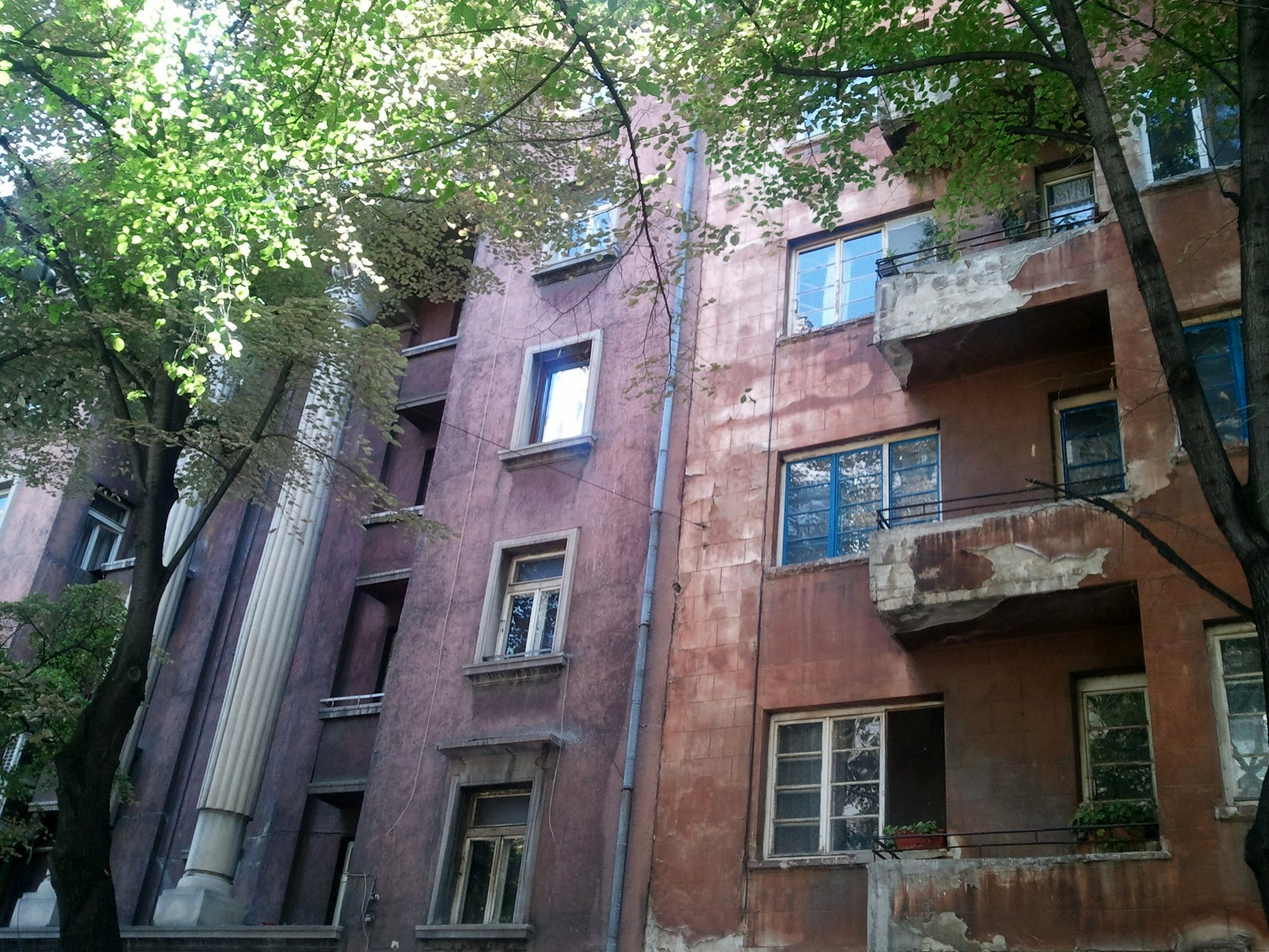
Fragments:
It’s a strange building, this National Palace of Culture. Presentation rooms are numbered non-monotonically (6 on the ground floor, 3 somewhere in the middle and 10 on top), and not all staircases lead to all floors. The conference organizers have sealed a random subset of the building’s numerous identical smoked-glass doors—at one point I find myself face-to-face with another attendee, each of us trying to pass to the other’s position but separated by a lock. A wrong turn leads down a dim corridor of refrigeration equipment and scratched-in Communist graffiti; this ends in yet another locked door and I’m eventually forced to return to the bottom of the Palace, cross to a different staircase, and ascend to my destination. Several rooms are decorated with monumental Riveraesque murals to Slavic strength and perseverance, white slides on point processes and max-margin models bordered by weeping mothers and men impaled against crosses of steel.
Pop music is universal, but the songs beggars sing in subway stations have the character of locality.
I don’t think I’ve ever eaten so much cheese in my life: soft, salty and white. Food, if it can’t be topped with cheese, is smothered in yogurt.
Sofia is a shabby city—spray-painted Cyrillic, sickles and swastikas cover even the nicer shopping districts, and feral cats pace loose paving stones in broken sidewalks—but its shabbiness is the shabbiness of an old wardrobe or scuffed couch: the result of use, rather than neglect; comfortable. The streets are clean. On weekends the residents, like Mediterraneans, sip beer in outdoor cafes and water from public fountains, in the shade of decaying concrete.
